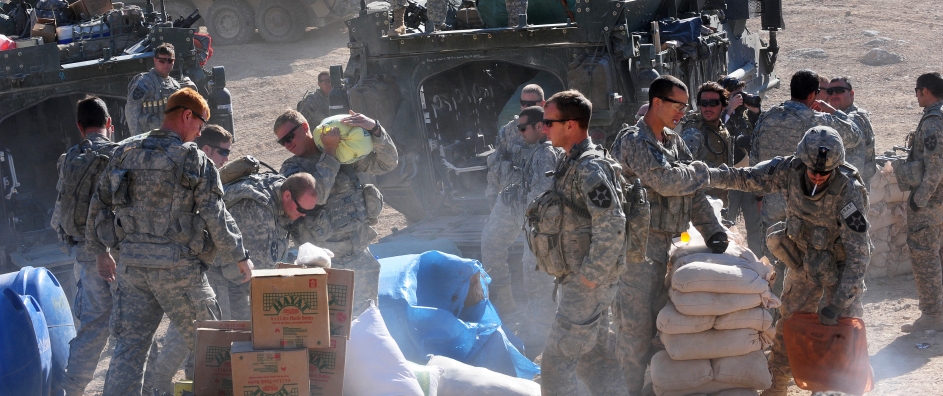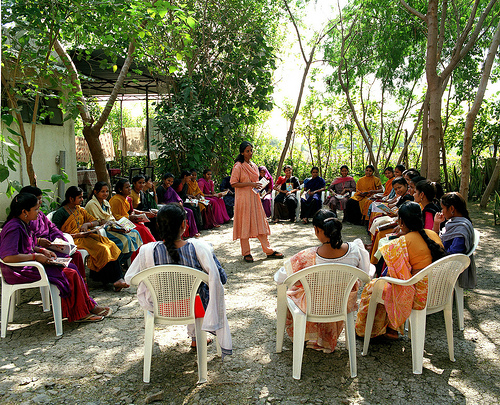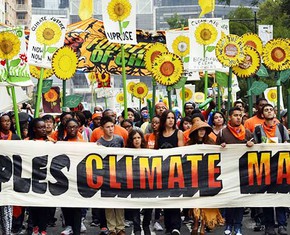The views expressed in our content reflect individual perspectives and do not represent the authoritative views of the Baha'i Faith.
 The world has spent billions and perhaps trillions of dollars in attempts to address the major issues of fragile, war-torn states, but those issues still stubbornly persist. The “aid industry” – the loose confederation of NGO’s and aid donors – has tried to solve the fragile state problem, but increasingly governments and others question the efficacy of the industry’s methods. Baha’is believe the time has come for a new approach.
The world has spent billions and perhaps trillions of dollars in attempts to address the major issues of fragile, war-torn states, but those issues still stubbornly persist. The “aid industry” – the loose confederation of NGO’s and aid donors – has tried to solve the fragile state problem, but increasingly governments and others question the efficacy of the industry’s methods. Baha’is believe the time has come for a new approach.
Abdu’l-Baha’s statements about politics and governance can also help us understand some of what is going on in fragile, war-torn countries:
The world of politics is like the world of man; he is seed at first, and then passes by degrees to the condition of embryo and fetus… the political world … cannot instantaneously evolve from the nadir of defectiveness to the zenith of rightness and perfection. Rather, qualified individuals must strive by day and by night, using all those means which will conduce to progress, until the government and the people develop along every line from day to day and even from moment to moment.
… when the pure intentions and the justice of the ruler, the wisdom and consummate skill and statecraft of the governing authorities, and the determination and unstinted efforts of the people, are all combined; then day by day the effects of the advancement, of the far-reaching reforms, of the pride and prosperity of government and people alike, will become clearly manifest. – The Secret of Divine Civilization, pp. 107-108.
The Baha’i approach to development workdoes not mean something that one set of actors do to or for others – instead, the Baha’i teachings recommend an endogenous, organic, home-grown process, the opposite of most development strategies in the Developed nations often impose on developing states and cultures a set external processes to follow, which Baha’is see as an outmoded and ineffective model.
The Baha’i writings stress the importance of establishing solid, grassroots spiritual and administrative foundations for individuals, communities and institutions – the three protagonists in the unfoldment of Baha’u’llah’s new world order – at the local and regional levels, before organically expanding focus and beginning to apply spiritual principles to address the practical needs of society. We know this approach works, because Baha’i communities have used it to alleviate poverty, conflict and human rights abuses in many parts of the world. In fact, while this applies to Baha’i communities everywhere, a good number of the Baha’i communities that have reached this advanced development threshold are located in fragile and war-torn states, in regions such as sub-Saharan Africa and elsewhere.
Baha’is who have immersed themselves in various traditional development activities have learned this lesson by experience. Most of my work, for example, has not been at the grassroots – on the contrary, I have been hired to evaluate or help implement several large projects, those top-down exercises that are anything but the natural extension of endogenous spiritually-coherent organic local growth.
One example, with a large donor agency to carry out a governance assessment in northern Afghanistan, will produce guidelines for the next few years of their support for governance in the region. The guidelines will likely focus on institutions more than on communities and individuals.
While individuals and communities will no doubt be affected by these projects, most local people will likely have little sense of ownership or much input in their design and implementation. I will try to incorporate local people in planning the next set of donor-supported projects, but my suggestions may have little effect on the overall activities of the “aid industry” and its expensive, externally-imposed and often relatively ineffective operations.
While there have been some positive experiences in the international development field, I am convinced that adopting a Baha’i-inspired model of grassroots, organic development would produce better and more long-lasting results that the top-down development model currently utilizes.
Read the next article in the series: Effective Leadership for Troubled Countries
Read the previous article in the series: Fragile, War-Torn States and the Baha’is
You May Also Like
Comments


















Although I have never gone overseas for development work, I have participated in several local "development" projects by Canadian NGOs and youth groups, as well as in the Canadian Association for Studies in International Development (CASID) conference for about 5 years (served on the Executive Committee for the undergraduate/graduate students conference "InSight" held in parallel), and I can say that the measure of "success" most people in ...the "aid industry" have is far different from that of Baha'is. Emphasis is put so much on numbers and statistics that you think a particular project is having such widespread amazing and positive affects until you hear the actual stories from youth on the ground...or testimonials from those in the population they are trying to serve. It becomes clear at that point that, more often than not, the "aid industry", in terms of individuals serving abroad, has become little more than morally gratifying tourism for westerners.
Based on this standard the Baha'i model could be currently ranked as at most moderately effective. However I wouldn't trade an hour of the time I've served my community with that model for any amount of time anywhere near one of those NGOs or conferences. The Baha'i model is theoretically sound, and is slowly (faster than most may think) being implemented and perfected in practice. It is by FAR the fastest changing and growing grassroots effort I have ever seen.